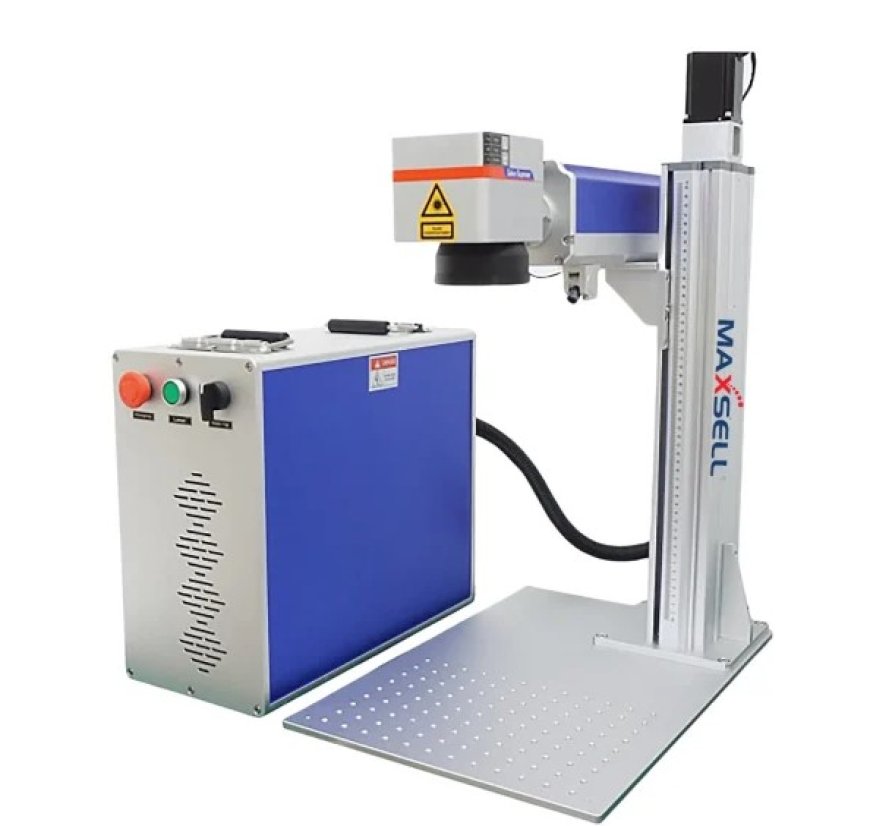Choosing the Right Fiber Laser Marking Machine for Your Industry
How to choose the right fiber laser marking machine for your industry needs. Learn about material compatibility, power, speed, software, and compliance.

In todays rapidly evolving manufacturing landscape, precision, efficiency, and permanence are non-negotiable when it comes to product identification and traceability. Whether you're in the automotive, electronics, jewelry, medical, or packaging industry, investing in the right fiber laser marking machine can significantly elevate your production standards. These machines are known for delivering high-speed, high-resolution marks on a wide range of materials including metals, plastics, ceramics, and more. But with so many options available in the market, selecting the most suitable model for your specific industry demands a deep understanding of your operational needs, the machine's capabilities, and future scalability.
Understanding Your Material and Application
The first step in choosing the right machine is identifying the types of materials you'll be marking. Fiber laser technology excels in marking metals such as stainless steel, aluminum, brass, titanium, and even certain plastics. If your products primarily involve metals, a fiber laser is usually the best fit due to its wavelength and beam quality. However, for materials like wood, glass, or leather, CO? or UV laser systems might perform better. Therefore, the type of substrate directly influences your decision.
Application-specific requirements also matter. For instance, deep engraving for tool or mold manufacturing is different from high-speed marking for electronics components. In the jewelry industry, fine detailing and precision are essential, while the automotive sector often requires high-contrast, durable marks for identification. Matching the application with the laser's power output, focal length, and control software ensures optimal performance and longevity of the equipment.
Evaluate Power and Speed Requirements
The laser power ratingtypically ranging from 20W to 100W or higherdetermines how efficiently the machine can mark different surfaces. For light-duty tasks such as marking barcodes or QR codes on small electronic parts, a 20W laser might suffice. But for deeper engraving, faster production speeds, or larger marking areas, opting for a higher wattage is advisable. However, more power doesnt always mean better results; it must align with your production volume and material type.
Speed is another crucial factor, especially for high-volume manufacturing environments. Advanced machines can mark items in seconds without compromising quality. This helps reduce bottlenecks and maintain consistent throughput. Checking the pulse frequency, marking speed (in mm/s), and scanning system efficiency will help you gauge how well a machine fits into your existing workflow.
Software Compatibility and Ease of Use
Modern fiber laser marking systems come with integrated software that allows users to design, edit, and automate marking tasks. Its essential to choose a machine that supports widely-used design formats and offers intuitive interfaces. User-friendly software can reduce the learning curve for operators and minimize errors during marking. Look for features like auto-adjust focus, preview mode, and template storage, which streamline daily operations.
Moreover, some industries require data-driven markingserial numbers, batch codes, or even variable QR codes generated in real time. For such dynamic marking, make sure your machine supports database integration and programmable logic control (PLC) systems. A scalable software platform ensures your laser system remains relevant as your business grows.
Maintenance, Support, and After-Sales Service
Although fiber lasers are generally low-maintenance compared to other technologies, having access to reliable customer support is vital. Choose a supplier who offers robust after-sales service, including technical training, warranty, spare parts availability, and remote diagnostics. A responsive service team can reduce downtime and help your operators get the best from the machine.
Also, consider the availability of upgrade options. As your production demands increase or diversify, you may need to expand capabilities. A modular machine design or add-on features like rotary attachments for cylindrical objects can enhance the systems utility across multiple projects.
Industry Certifications and Compliance
Depending on your sector, there might be specific safety, environmental, or quality standards to follow. For example, medical and aerospace industries often require machines compliant with FDA or CE guidelines. Ensure that the equipment meets these certifications to avoid regulatory issues and ensure product reliability.
In conclusion, selecting the right fiber laser marking machine is not just about picking the latest modelit's about aligning the machines capabilities with your specific industry needs. Consider the materials, desired output, software functionality, and long-term service to make a choice that delivers both value and performance.









































